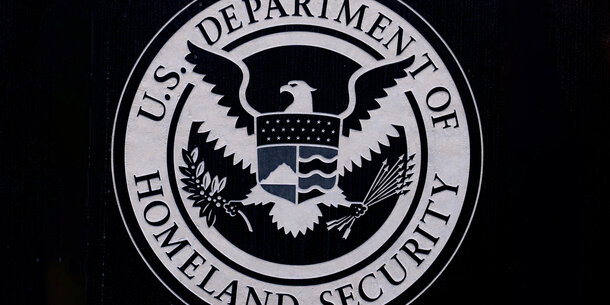Limits on Stripping U.S. Citizenship
In 1824, the Supreme Court held that a naturalized citizen is “a member of the society, possessing all the rights of a native citizen, and standing, in the view of the Constitution, on the footing of a native.” Since the 1940s, it has issued a series of decisions recognizing the importance of citizenship rights. Among other things, the Court has rejected congressional attempts to treat naturalized Americans differently than the native born and rebuffed attempts to denaturalize Americans based on their country of origin, beliefs, or statements, no matter how unpopular or even odious. Unless a citizen consents to give up their citizenship, the government must prove that they illegally acquired that citizenship in the first place and meet an elevated burden of proof.
Fundamental Protections
The Supreme Court jurisprudence constraining the government’s attempts to strip citizenship from Americans developed around the time of World War II and in its aftermath. The legal disputes often involved the most unsympathetic people — alleged Nazis and communists — and arose at a time when the United States was at war with Germany and in the throes of the Second Red Scare and McCarthyism. Rather than cave to the political climate, the Court articulated several key principles and rules limiting the government’s authority to denaturalize citizens that remain in effect today.
In the 1943 case Schneiderman v. United States, the Court emphasized that citizenship is a “precious right” and it would “be difficult to exaggerate its value and importance.” Taking it away is “more serious than a taking of one’s property, or the imposition of a fine or other penalty.” This recognition permeates its subsequent decisions and forms the basis for the stringent standards it set.
The Schneiderman Court also showed its skepticism of denaturalization attempts that have a nexus to First Amendment–protected speech and activities. The justices rejected the Roosevelt administration’s attempt to revoke the citizenship of a Nazi sympathizer, holding that his country of origin, beliefs, or statements — even if hated by a majority of the country — were irrelevant to the determination of whether to take away his citizenship. Rather, rights to “liberty in thought and action [belong] to all those upon whom the right of American citizenship has been conferred by statute, as well as to the native born.” Concurring, Justice Wiley Rutledge said that a citizen living under a threat of denaturalization could never be truly free. “If he belonged to ‘off-color’ organizations, or held too radical or, perhaps, too reactionary views . . . he could not open his mouth without his words being held against him. . . Such a citizen would not be admitted to liberty. His best course would be silence or hypocrisy. This is not citizenship,” he wrote.
Again in 1946, the Court in Knauer v. United States affirmed its commitment to ensuring that naturalized citizens are able to fully exercise their First Amendment rights. Although the Court concluded that Knauer had fraudulently procured his citizenship, it warned that naturalized citizens must have “the right to speak freely, to criticize officials and administrators, and to promote changes in our laws;” to do otherwise would “make denaturalizations the ready instrument for political persecutions.”
The Court has also consistently turned back congressional attempts to impose conditions on naturalized citizens. In Schneider v. Rusk, the justices struck down a law that allowed the government to revoke the citizenship of naturalized Americans who lived in their native country. No such rule applied to native-born Americans. This discrepancy, the Court held, relied on “the impermissible assumption that naturalized citizens as a class are less reliable, and bear less allegiance to this country than do the native born.” The Afroyim Court invalidated a law that would have stripped a naturalized citizen of his citizenship for moving to Israel and voting in its elections. Congress does not have “any general power, express or implied, to take away an American citizen’s citizenship without his assent,” it ruled.
Heightened Scrutiny
In addition to establishing fundamental rules recognizing citizenship as a right of the highest order, insisting on equal rights for naturalized and native-born citizens, and protecting naturalized citizens’ First Amendment rights, the Court established stringent rules for reviewing citizenship stripping cases.
Clear, unequivocal, and convincing proof
The Court has repeatedly held that, given the vital interest at stake, citizenship cannot be taken away in a civil proceeding unless the government provides clear, unequivocal, and convincing evidence that revocation is warranted. This standard is “substantially identical with that required in criminal cases — proof beyond a reasonable doubt.”
In-depth scrutiny of record
In applying the clear, unequivocal, and convincing standard, the Court reviews the record with heightened scrutiny. In the 1944 case Baumgartner v. United States, for example, the Court did not defer to the lower court’s finding that a German-born citizen had not truly and fully renounced his allegiance to Germany and did not intend to support the Constitution and laws of the United States. Instead, it conducted a detailed review of the timing and content of Baumgartner’s statements and diary entries about the virtues of Hitler and the German government and concluded that the evidence was insufficient to “penalize a naturalized citizen for the expression of silly or even sinister-sounding views which native-born citizens utter with impunity.”
Similarly in Schneiderman, the Court conducted a thorough canvass of Schneiderman’s Communist writings to conclude that his membership in the Communist Party did not mean that he supported overthrowing the American government by force and thus was not attached to the Constitution.
Proof of willfulness and materiality
As the United States entered the Cold War and Sen. Joe McCarthy (R-WI) led the House Un-American Activities Committee to root out suspected Communists, the Supreme Court again stepped in to limit citizenship-stripping efforts. In Nowak v. United States in 1958, the Court required the government to show that a citizen’s alleged opposition to the principles of the Constitution was willful; mere support for the Communist Party, which held those views was not enough.
Two years later, in Chaunt v. United States, the Supreme Court imposed a fourth requirement: materiality. The government had filed a civil case arguing that Chaunt’s citizenship should be revoked because he falsely denied membership in the Communist Party, lacked the requisite attachment to the Constitution, and had concealed and misrepresented his record of arrests. The Court held that the government had to show that any information Chaunt concealed would have warranted denial of citizenship or might have been useful in an investigation leading to the discovery of other facts justifying denial of citizenship. The “tenuous” connection between Chant’s prior arrests and his connection to the Communist party did not meet that standard.
By the time the Court issued Afroyim in 1967 holding that unlawful procurement was the only circumstance in which a naturalized American could be deprived of citizenship then, the Court had established strict legal requirements for citizenship stripping.
In 1988, Justice Antonin Scalia wrote for the majority in Kungys v. United States and summarized the four-part test for civil denaturalization when citizenship was unlawfully procured: the naturalized citizen must have misrepresented or concealed some fact, the misrepresented or concealed fact must have been willful, the fact must have been material, and the naturalized citizen must have procured citizenship as a result of the misrepresentation or concealment.
The only issues in dispute in the case were materiality and procurement. The majority opinion defined the materiality test as whether the misrepresentation or concealment had a natural tendency to produce the conclusion — by evidence that is clear, unequivocal, and convincing — that the applicant was qualified for citizenship. As for the requirement of procurement as a result of misrepresentation or concealment, the majority held that a material misrepresentation created a presumption that the naturalized citizen had been unqualified, but that she could rebut that presumption with a showing by a preponderance of the evidence that she actually had met the statutory requirement for naturalization.
Criminal Denaturalization
The Court has held firm to these principles in criminal denaturalization cases as well. In 2017, in Maslenjak v. United States, the Court considered criminal denaturalization pursuant to 18 USC 1425 which — similarly to the civil denaturalization provision — provides that an American’s citizenship can be revoked if the individual knowingly procured, contrary to law, the naturalization of any person.
A unanimous Court rejected the government’s argument that any false statement in the naturalization process was sufficient to establish that the citizen “knowingly procured” their citizenship unlawfully. Rather, the unlawful act — in this case, making a false statement — must have a causal connection to the acquisition of citizenship, meaning be material.
During oral argument, Chief Justice John Roberts showed the absurdity of ruling otherwise. The naturalization application asks whether the applicant ever committed a crime or offense for which he was not arrested. If a naturalized citizen drove 60 miles per hour in a 55 mph zone, Roberts pointed out, but later answered “no” to that question, his citizenship could be revoked. Such a result could lead to nearly any naturalized citizen being stripped of the right to citizenship for a failure to disclose even the most minor offense.
In sum, even during periods of heightened suspicion of foreign nationals, the Court has imposed strict limits on government efforts to strip citizenship, including a high burden of proof, de novo examination of the record, and materiality and willfulness requirements.




